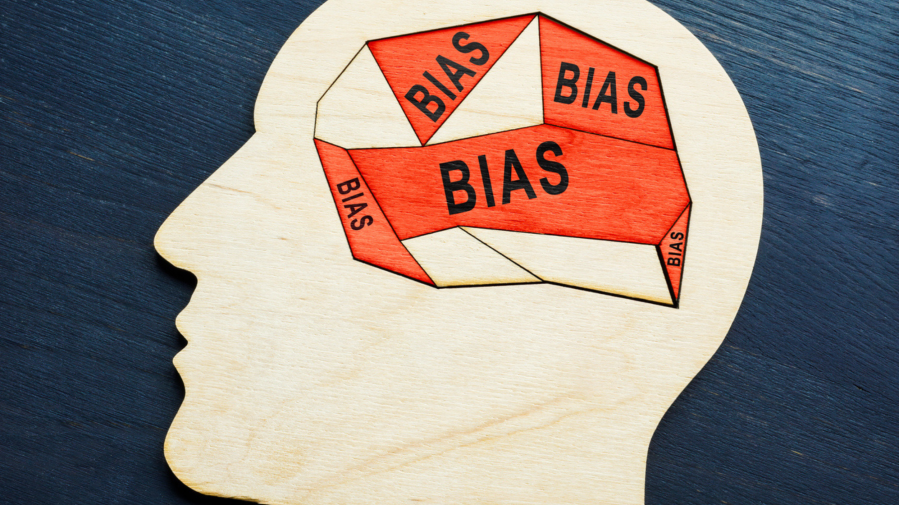
The human brain has a natural tendency to focus more on and remember the negative encounters, experiences, or interactions than the positive ones. This trait explains why we feel stuck thinking about the unpleasant events, setbacks endured, or bad and depressing news. Psychologists refer to this as negativity bias and suggest it can have severe effects on health.
What is Negativity Bias?

Negativity bias refers to the tendency to readily register negative stimuli and dwell on such events more than positive ones. Also known as the positive-negative asymmetry, it essentially involves attending to, learning from, and using negative information far more than positive information. The bias makes us feel the sting more intensely than the joy of praise.
Multiple research studies across various psychological fields have attempted to explore the bias. According to prominent psychologists like Rick Hanson, the asymmetry in how we process positive and negative experiences isn’t a new phenomenon. Negativity bias has been built into our brains based on years of evolution.
Our ancestors lived in difficult times and under challenging circumstances. They had to find food but still duck deadly obstacles. Inadvertently, they noticed, reacted to, and remembered negative experiences (i.e. predators and natural hazards) more than finding food or shelter.
Impact of Negativity Bias on Mental Health
The correlation between negativity bias and mental health is heavily scrutinized and debated in the science community. Nonetheless, the few available empirical evidence recognize negativity bias as a risk factor for depression and anxiety. In other words, the bias impacts the neural circuitry for fear processing. So, negativity bias is central to developing and maintaining depression and anxiety since biases toward fear stimuli in psychological disorders have been observed in cognitive tasks that manipulate conscious and unconscious processing.
The mechanism of the impact occurs in the brain functions, specifically, the neural activity linked to depression and anxiety. For instance, the bias produces hyper-activation of fear circuitry during nonconscious processing in anxiety and conscious processing in depression. In addition, excessive activation of the amygdala to nonconscious fear is also registered in anxiety disorder or cases of post-traumatic stress disorder (PTSD) and individuals with extreme cases of depressive disorder.
The impact of negativity bias isn’t limited to the functional aspect of the brain; its impact extends to the organ’s structure. As established above, depression and anxiety are marked by altered arousal. So, excessive arousal resulting from the susceptibility to trauma and stress can cause permanent changes to the brain structure that exacerbate a bias towards the expectation of threat. This helps explain why people with mental health conditions associated with negativity bias have a structurally unique brain.
Moreover, negativity bias plays a critical role in forming and shaping one’s beliefs about themselves and own abilities. You receive constant feedback from everyday interactions with people and the world as a whole. Naturally, as also backed by social learning studies, people tend to learn better from good news (positivity bias) and improve their performance, abilities, or situations. However, people with a more pronounced negativity bias tend to focus on bad news and feedback, which models the belief about their own abilities. As a result, they develop poor self-esteem and a diminished sense of self-worth.

The ability of negativity bias to affect one’s mental health has a subsequent impact on key aspects of the person’s life. A classic example is impaired cognitive abilities. Outweighing the negatives over the positives leads to notable differences in attention, learning, and memory.
Several studies have shown that when presented with both positive and negative stimuli, people pay disproportionate attention to the negative than the positive. For example, in one study, subjects blinked more frequently when studying negative words than positive – the rate of blinking is associated with cognitive activity. Aside from blinking, increased heart rate, pupil diameter, and arterial tone all showed uneven attention towards negative stimuli.
Learning and memory are direct consequences of attention. Therefore, when attention is affected, learning and memory become impaired. For instance, an individual with a worse case of negativity bias, say a deeply depressed patient or one with PTSD, will quickly learn and memorize information following a bad event than good ones.
Another classic case of the repercussions of negativity bias on cognitive ability is decision-making. The bias can have a serious impact on the decision-making process. For instance, you will tend to place greater weight on negative aspects of an event or a person than positive aspects. An example is a case of making a critical business decision; an individual with a conspicuous level of negativity bias will focus more on the money they will potentially lose as opposed to the money they would make.
Overcoming Negativity Bias

The negativity bias can take a toll on your mental health, compelling you to dwell on dark thoughts, making it difficult to form and sustain relationships, and having a poor and pessimistic outlook on life. So you must address the negativity bias, especially if you’re a victim.
Fortunately, there are a few steps you can take.
- Avoid negative self-talk by paying attention to the thoughts that run through your mind and fixating your mind on lessons learned after an unfortunate event and how the lessons apply to the future.
- Reframe the situation – in other words, find a way to describe the situation without necessarily dwelling on the negative aspects. Look for ways to reframe the situation in a positive light.
- Savor positive moments – since taking note of positive experiences takes more effort, make it a habit to pay extra attention to positive moments. Enjoy the moment, journal, or share it with your friends.
The negativity bias can profoundly impact your psychological and emotional state, which can then reflect on your behavior and physical health. So being aware of the bias and taking necessary steps to avoid its implications can improve your health and how you approach life. Use the tips above to prevent or overcome negativity bias.





